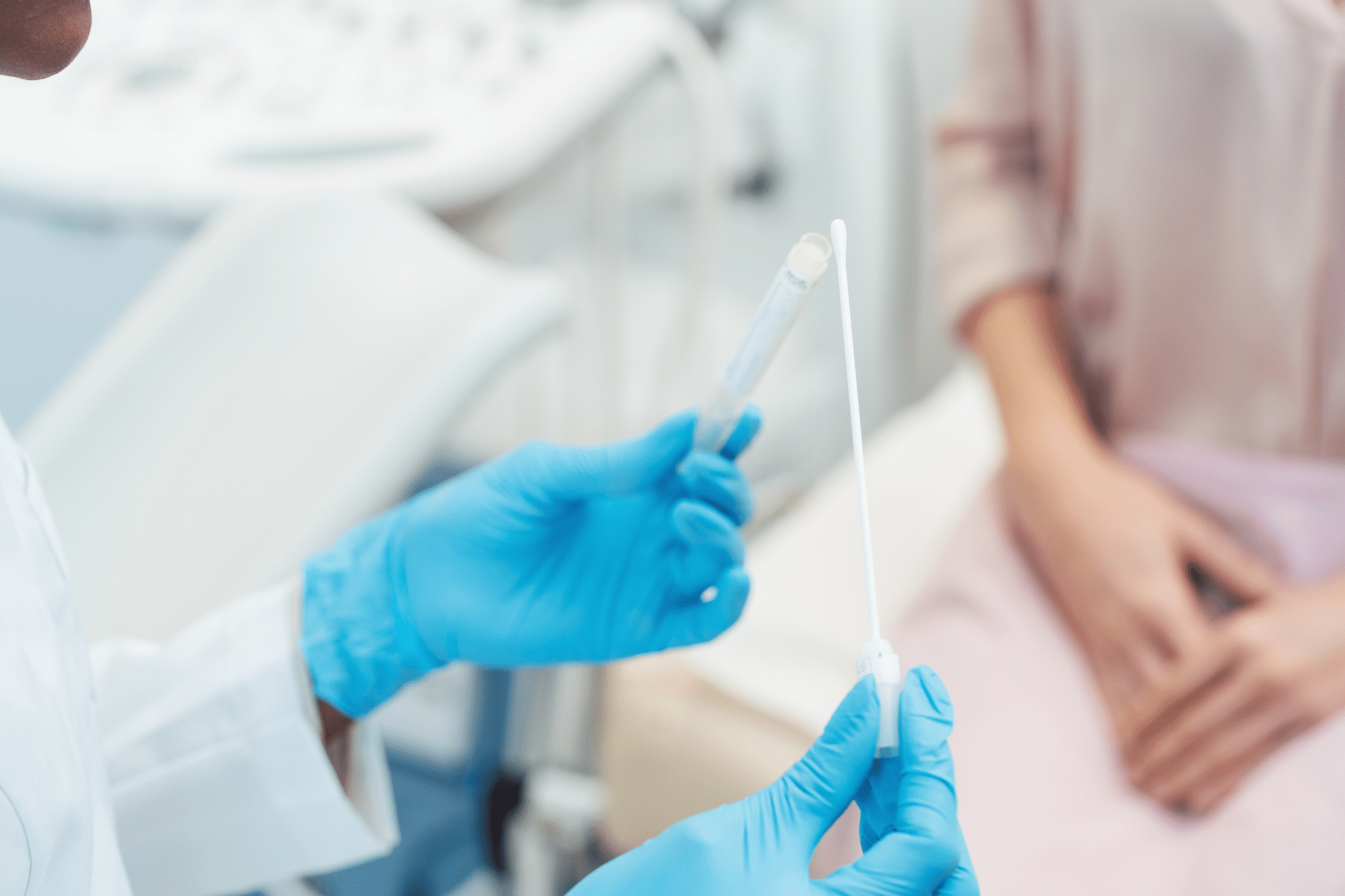If you have an STD while you’re pregnant, you may experience both short and long-term health problems.
In this blog, we’ll explain what these infections are and why you should immediately seek STD testing and treatment if you think you’re pregnant.
What are sexually transmitted diseases?
Sexually transmitted diseases (STD) are infections that affect your reproductive system. They are usually passed (transmitted) through sexual activity.
There are three types of STDs, also called sexually transmitted infections (STI): viral, parasitic, and bacterial. These infections pass from person to person through bodily fluids. Blood, semen, vaginal fluids, saliva, and other bodily fluids can all pass an STI.
Contact with an infected person’s genitals or pubic hair may transmit the infection as well.

If you have vaginal, oral, or anal sex with someone who has an STD, you are at risk of getting it too. Condoms and other barriers may offer some protection, but they won’t protect you fully.
The Mayo Clinic recommends limiting your number of sexual partners to lower your risk of infection. Every time you have sex, there is a chance that your partner may pass an STI to you. That risk increases if the person you are having sex with has multiple sexual partners.
Abstinence, or not having sex, is the only way to protect yourself from an STI. You can’t get a disease spread by sex if you don’t have sex.
What are the symptoms of an STD?
The majority of people with an STD will have no symptoms at all. There are many types of sexually transmitted diseases, so if a person does have symptoms, they may vary. That said, there are several signs that may indicate an STI.
You may have an STD if you experience:
- Pain or burning when you pee
- Vaginal discharge, especially if it’s cloudy, bloody, green/yellow, thick, or smells bad
- Pain or pressure in the stomach area or lower back
- Genital bumps, sores, warts, or blisters
- Vaginal itching, pain, or discomfort
- Rectal pain or discomfort
- Bleeding between periods
- Pain during sex
Some people have strong or mild symptoms that are hard to ignore. Others, however, never have any signs, even though they are infected.

These types of infections are the most dangerous. Without symptoms, you or your partner may never know you have an STD. You may spread the disease to others without realizing it.
Some sexually transmitted diseases can be treated with medications. Others have no cure. These infections may affect your health for the rest of your life. A small number of diseases may threaten your life as well.
It’s critical to diagnose and treat any STIs you may have. It’s especially important to check for an infection if you are pregnant.
What if I have an STD while I’m pregnant?
Pregnancy will not protect you from STIs. You can still get a sexually transmitted disease while you’re pregnant. And if you already have an infection, the complications you might experience are more dangerous.
Here are three ways that an STD can affect your pregnancy and health.
1. Pelvic inflammatory disease (PID)
Sometimes sexually transmitted infections, such as gonorrhea or chlamydia, can spread deeper into your reproductive system. Pelvic inflammatory disease is an infection that affects your uterus, ovaries, or fallopian tubes.
Usually, your cervix has a protective barrier that keeps bacteria and viruses out of your womb. But during an abortion or birth, this barrier is disrupted. If you haven’t gotten treatment for your STD, it may spread into your reproductive organs.
It’s especially important to get STI testing and treatment before a surgical abortion. The doctor’s tools may carry the infection from your vagina and into your uterus during the procedure.
Pelvic inflammatory disease can cause symptoms such as:
- Abdominal or pelvic pain
- Discomfort or pain during sex
- Heavy or painful periods
- Pain while peeing
- Vaginal discharge that is green, yellow, or smells bad
PID may also lead to scarring in your fallopian tubes. Often, this complication can cause infertility or ectopic pregnancy.

2. Premature labor
An untreated STI may cause you to go into early labor with your current pregnancy. It might affect future pregnancies as well.
Researchers believe that the bacteria that causes the STD can infect the membranes that surround the placenta. The infection may also spread into the amniotic fluid.
This condition, called chorioamnionitis, can trigger premature labor. If you give birth too early, the baby may not survive.
3. Passing the infection to the fetus
Some sexually transmitted diseases can also pass to the baby during pregnancy or birth. While the fetus moves through the birth canal, it may come in contact with the virus or bacteria that caused the infection. It might damage the baby’s eyes, central nervous system, joints, organs, and more.
If you learn that you have an STD while you’re pregnant, your doctor can treat the disease or create a plan that protects you and the fetus.
Get free STD testing and treatment at Thrive Orlando
If you think you are pregnant, getting STI testing and treatment should be one of your first steps. Whether you choose abortion, adoption, or parenting, your sexual health should be a top priority.
Make an appointment for a free pregnancy test to see if you qualify for our free STD testing and treatment service.

